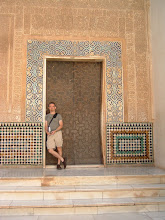The U.S. and Venezuela have both declared each other's diplomats persona non grata - which is the legal term for 'get the hell out.'
According to this article, this diplomatic showdown started after Bolivia asked the U.S. envoy in La Paz to leave. Bolivia accused the U.S. ambassador of instigating violent protests amongst the lower class.
What's the controlling international law?
The Vienna Convention on Diplomatic Relations of 1961 controls - well - diplomatic relations. It ensures safe passage for diplomats and their goods and codifies the inviolability of embassies and consuls. This inviolability existed before the Convention as customary law, but controls now.
The U.S., and Venezuela are both signatories to the Convention. Bolivia has acceded to the Convention.
Article 9 of the Convention states:
Expelling diplomats is a move often used in brinkmanship between countries.
What does this mean to you?
The expulsion of diplomats is hardly a reason to panic. Theoretically, new diplomats could be sent to replace the ones expelled. No country appears to have severed all diplomatic relations.
Still, such brinkmanship from South American countries is troubling. The U.S. relationship with many countries south of its border have become tense. Decades of intrusive narcotic policies, support for toppling local governments, and rising rhetoric by the U.S. towards South America has created an increasing sense of mistrust.
The implications from this is that the U.S. will find itself increasingly unable to influence policy in this area. From drug trafficking to mining and oil sales, South American countries may find reasons to go against the interests of the U.S. If only out of spite for decades of ill treatment.
As world politics shift to accommodate the rising economic might of China & Russia, the U.S. should be seeking to strengthen relationships, especially with it's neighbors.
According to this article, this diplomatic showdown started after Bolivia asked the U.S. envoy in La Paz to leave. Bolivia accused the U.S. ambassador of instigating violent protests amongst the lower class.
What's the controlling international law?
The Vienna Convention on Diplomatic Relations of 1961 controls - well - diplomatic relations. It ensures safe passage for diplomats and their goods and codifies the inviolability of embassies and consuls. This inviolability existed before the Convention as customary law, but controls now.
The U.S., and Venezuela are both signatories to the Convention. Bolivia has acceded to the Convention.
Article 9 of the Convention states:
"The receiving State may at any time and without having to explain its decision, notify the
sending State that the head of the mission or any member of the diplomatic staff of the mission is
persona non grata or that any other member of the staff of the mission is not acceptable. In any such
case, the sending State shall, as appropriate, either recall the person concerned or terminate his functions
with the mission."
This means that any state that may at any time may withdraw recognition of a diplomats credentials and ask them to leave the country. There does not have to be a reason for a state to do this.sending State that the head of the mission or any member of the diplomatic staff of the mission is
persona non grata or that any other member of the staff of the mission is not acceptable. In any such
case, the sending State shall, as appropriate, either recall the person concerned or terminate his functions
with the mission."
Expelling diplomats is a move often used in brinkmanship between countries.
What does this mean to you?
The expulsion of diplomats is hardly a reason to panic. Theoretically, new diplomats could be sent to replace the ones expelled. No country appears to have severed all diplomatic relations.
Still, such brinkmanship from South American countries is troubling. The U.S. relationship with many countries south of its border have become tense. Decades of intrusive narcotic policies, support for toppling local governments, and rising rhetoric by the U.S. towards South America has created an increasing sense of mistrust.
The implications from this is that the U.S. will find itself increasingly unable to influence policy in this area. From drug trafficking to mining and oil sales, South American countries may find reasons to go against the interests of the U.S. If only out of spite for decades of ill treatment.
As world politics shift to accommodate the rising economic might of China & Russia, the U.S. should be seeking to strengthen relationships, especially with it's neighbors.





0 Comments:
Post a Comment